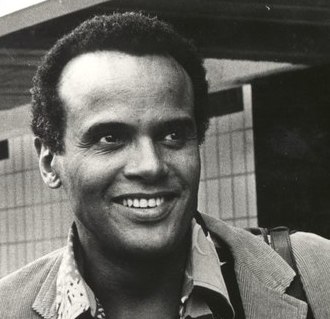Remembering Harry Belafonte
Professor Tukufu Zuberi describes meeting the musician-turned-activist, plus how Belafonte used his talents for good and what legacy he leaves behind.
It’s one thing to listen to and admire the words of a famous musician and activist from afar. But when Harry Belafonte came to Penn in 2007, Tukufu Zuberi had the chance to spend a full day with the civil rights advocate. “He was an extraordinary individual in how he held himself,” recalls Zuberi, Lasry Family Professor of Race Relations and a professor in the Departments of Sociology and Africana Studies. “He had a certain dignity that he walked with, that he talked with.”
Belafonte was on campus as part of that year’s Rev. Dr. Martin Luther King Jr. Lecture in Social Justice, a conversation with Professor Mary Frances Berry moderated by Zuberi. “It was a packed house,” Zuberi says. “People loved Harry Belafonte.”
In remembrance of Belafonte, who passed away on April 25 at the age of 96, OMNIA spoke with Zuberi about his first impressions after that in-person meeting, plus how Belafonte used his music for good and what legacy he’s leaving behind.
What was it like spending time with Harry Belafonte?
The entire process was wonderful. It was wonderful to take a day and just listen to him, to calm down and hear the profundity of the life he had lived up to that point. Having a conversation with him, you could see here was a man who would have the courage to criticize so many powerful people, that he was interested in making this a better world.
That day in Irvine, that’s what the conversation with him and Mary Frances Berry focused on. I was there talking to these two titans of civil rights, titans of human rights, individuals who had spent their entire lives in the limelight because of their skills of brilliant intellect but also their humanity and their common cause with those who wanted to make this a better place.
Did you listen to Belafonte’s music?
Of course I did. I’ve even used his music in my teaching. He was a master of the connection between music and people, music and history, music and progress, music as a beautiful instrument to help us understand. I’m old enough to have been listening to Harry Belafonte music as it was coming out, as he was making it. Young people probably listen to it now because he’s “classic.”
He really figured out how to use his music as a force for change, for good. Why do you think he was so successful at this?
This man really treasured the potential of humanity. He thought about what he could do to make this a better world. He wasn’t just a person trying to make a lot of money, to sing the big songs. He wanted to do those things in the service of humanity. And he did that time and time again. Harry found a way to use his beautiful voice, to use his acting appeal, to use his beauty to make points about those who missed out on the better things of society. He lived a life of courage, of distinction, of speaking truth to power. He didn’t scream nonsense about making money. Some people think because they can scream loudly and a lot of people hear it, that they have said something. Harry sang with a beautiful voice and spoke ever so softly, but the power of his words was there.
What legacy would you say Belafonte leaves behind?
An important lesson that I learned from Harry Belafonte and that others should learn from him is that it is not just about having many people listen to your voice. You should have something to say. The substance should precede the idea that you just want people to listen to you. It’s not simply a question of having a million likes or followers. The real question is, do you have something to say?
This a good moment for us to reflect on how Harry Belafonte became Harry Belafonte. On his own admission, he saw the life he should live in the courage of his mother, who was an immigrant from Jamaica, in those who stood up for what’s right and just. There are so many musicians, so many actors today who are trying to do something for humanity. He mentored them. It’s beautiful to hear these young people talk about the profound impact he had on them. It’s even more beautiful to see them following in his tradition. He encouraged us all to be more—and that’s a courageous life lived.



